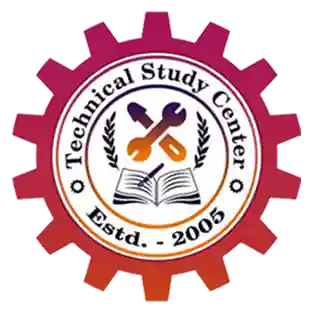At Technical Study Center, we believe that the right guidance and smart preparation can turn dreams into reality. If you aim to secure a government job at Indian Oil Corporation Limited (IOCL), you need more than just book knowledge. You must develop technical expertise, problem-solving skills, and a strategic approach to exams. Our structured training and expert mentorship ensure that you prepare effectively and confidently for this competitive exam.
Understanding the IOCL Recruitment Exam
IOCL recruits candidates for various technical and engineering posts through:
- Written Examination – Tests technical knowledge, reasoning, and general awareness.
- Skill & Trade Test – Practical test for hands-on application of concepts.
- Personal Interview – Assesses problem-solving, decision-making, and technical expertise.
- Medical & Document Verification – Final step before selection.
Since IOCL deals with refineries, pipelines, and energy solutions, candidates need to understand industrial safety, process optimization, and energy conservation in addition to their technical subjects.
Our Unique Approach to IOCL Exam Preparation
Most students follow traditional methods, but IOCL exams require practical thinking and smart learning techniques. At Technical Study Center, we focus on unconventional yet highly effective strategies to help students succeed.
1. Learning Through Industrial Case Studies
Instead of just reading theory, students should connect concepts to real-world scenarios.
Example:
For Thermodynamics, instead of just memorizing heat transfer formulas, students analyze:
- How do IOCL refineries optimize heat exchangers to save energy?
- Why is temperature control important in fuel storage tanks?
By understanding practical applications, students recall concepts faster and better during exams.
2. Reverse Learning – Start with Questions First
Many students struggle with application-based questions. We train them with reverse learning:
- Start with a previous IOCL exam question.
- Identify the key concept required to solve it.
- Study that topic and solve similar problems.
Example:
For Petroleum Engineering, students analyze a question on fuel combustion efficiency and then study the entire topic with a focus on exam-relevant aspects.
3. The “Two-Minute Explanation” Rule for Interviews
Technical interviews require clear, concise answers. We train students using the Two-Minute Explanation Rule:
- Explain any concept in under two minutes.
- Use real-world examples and diagrams.
- Keep it structured – Problem, Solution, Impact.
Example:
If asked about catalytic cracking in refineries, a student should quickly explain:
- What is it? (A process to break heavy hydrocarbons into lighter ones.)
- Why is it important? (Improves fuel efficiency and reduces waste.)
- Where is it used? (IOCL refineries for petrol and diesel production.)
This method improves clarity and confidence in interviews.
4. Smart Note-Taking – The “One-Page Summary” Method
Instead of writing lengthy notes, students create one-page summaries for each subject, which include:
- Key formulas and concepts in simple words.
- Diagrams and flowcharts for quick recall.
- Common mistakes and how to avoid them.
Example:
For Piping Systems in Refineries, students create a visual chart showing pipe materials, pressure limits, and maintenance tips. Before the exam, they revise only this, not full textbooks.
5. Exam Time Management – The “50:30:20 Strategy”
Since IOCL exams are time-sensitive, we train students with the 50:30:20 rule:
- 50% of time on easy and moderate questions to secure high marks.
- 30% of time on tricky numerical problems.
- 20% of time on revision and checking answers.
Example:
If a fluid mechanics question takes too long, students skip it and return later instead of wasting time.
